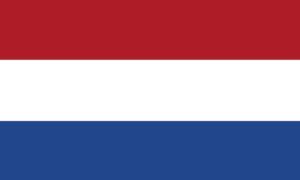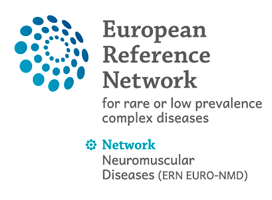Contact
Madelon Kroneman
- Member of the Patient Advisory Board

Madelon Kroneman was diagnosed with Myofibrilar Myopathy (Desminopathy). Her disease started at the age of 33. She is presently a member of the diagnosis working group “Muscular dystrophies and distal myopathies” of Vereniging Spierziekten Nederland, a Dutch neuromuscular patient organisation. She chaired this working group between 2002 and 2016. She is now the editor of the working group newsletter. She also follows scientific developments and is involved in reviewing scientific research concerning muscular diseases, both for funding bodies and for research requiring the involvement of members.
Contact me at pab@ern-euro-nmd.eu
Newsletter Interview
Madelon took part in an interview in which she was asked about her role within the network and her expectations. Below is a transcript of the interview which has previously featured in the EURO-NMD monthly newsletter .
a. Tell us a little bit about yourself
“In 1996 I experienced the first symptoms of a muscular dystrophy. I was diagnosed with an unknown type that was quite similar to limb-girdle dystrophy. My neurologist kept on searching for the right diagnosis and in 2010 I was diagnosed with myofibrilar myopathy with a mutation in the desmin gene. Nowadays I am a full time wheelchair user and on non-invasive ventilation support in the night. I became active at the Dutch neuromuscular association in 1999, where I was the chair of the diagnosis group for muscular dystrophies and distal myopathies from 2002 to 2017. I am still active in this group as the editor of our newsletter and I follow the scientific developments for our group. I am also member of the user board of a fundraising organization that funds scientific research into neuromuscular diseases. The user board evaluates whether applications are in the interest of patients. In daily life, I am working as senior researcher at the Netherlands Institute of Health Services Research, where I am a specialist in international comparative research. Both types of experience made that I was interested in the work of the Patient Advisory Board. I am married and I have two wonderful daughters, aged 21 and 24.”
b. What is your role in EURO-NMD?
“As a member of the patient advisory board (PAB), I try to give a voice to patients in the Euro-NMD network, together with my fellow PAB members. I think it is important that patients can make clear what their expectations, wishes and hopes are for the network. I am especially interested in ethical issues. I hope to contribute to the establishment of a knowledge base that can help patients making informed choices concerning their diagnosis, treatment or in reproductive issues. Furthermore, I am especially interested in patient registries. I try to advocate for good access of patients to these databases and that patients remain the sole owner of their personal data. Data sharing is important, but should be done with consent of the patient only. Patients should be able to withdraw their data at any point in time and for no matter what reason. Patients also should be able to change their data when not correct in an easy manner.
c. What are your expectations of the Network?
“I have a lot of expectations for the network. I hope the network will contribute to faster diagnosing new patients with very rare diseases. Bundling the knowledge and knowing which expertise can be find in which centre will help in these matters. Also, I hope that treatment will improve by combining the knowledge on our rare diseases. A good example of this is the development of guidelines for the treatment of the diseases in our network. Through a uniform registration system of patients, insight in the number of patients, where they live will and how their disease progresses be gained. This will be very helpful when new treatments or new medicines are developed that have to be tested and hopefully implemented as care as usual. It is important that all patients all over Europe can benefit from these developments. Finally, I hope that patients that do not have fellow patients in their own country may use the network to contact other patients with the same disease in other countries to share experiences.”

